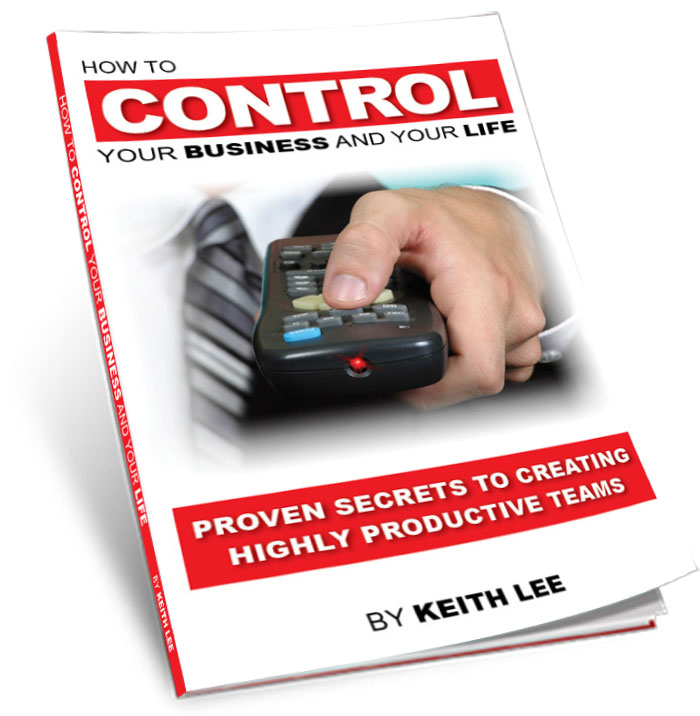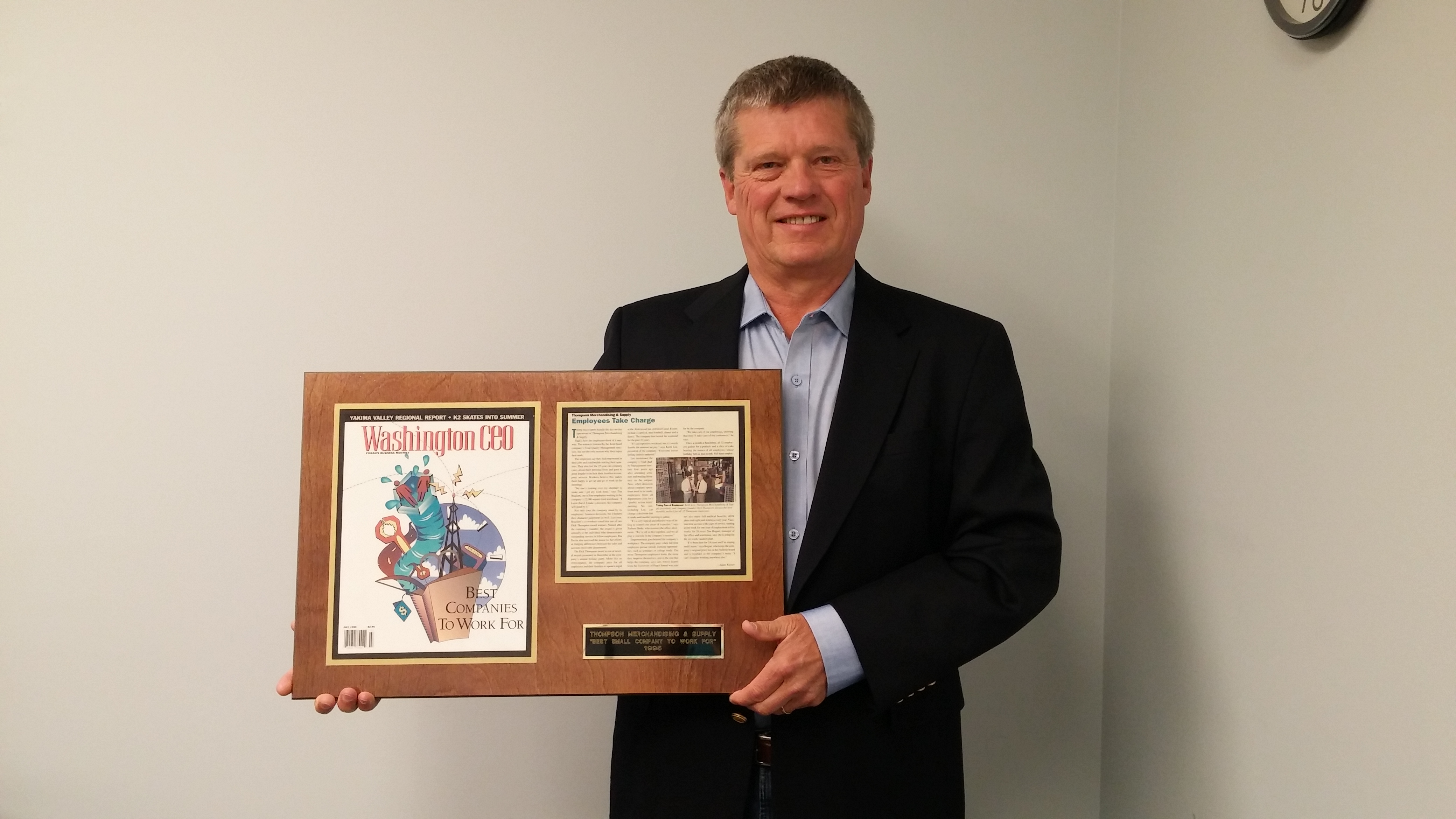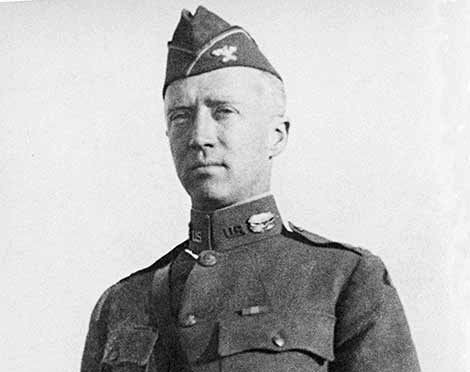When I started working at Thompson Marking Service (I later changed the name to American Retail Supply) in 1978 I knew nothing about,The Mind Stuff I’m going to discuss today. Fortunately, Dick Thompson, the founder of the company was into The Mind Stuff.
Each week started with us meeting at 7:00 am, Monday morning, at Video Training Center in Seattle. This place had hundreds of training video of all types. This was long before VCRs. These were big expensive videos, played on big expensive video tape players.
Our weekly meeting training was mostly about the mind stuff, motivation, self-confidence, setting goals, creativity, relationships, proper thinking. If I had not been introduced to people like Zig Ziglar, Earl Nightengale, Tom Hopkins, Mike Vance, Brian Tracy, Dennis Waitley, Jim Rohn, Murray Raphel, and others in my early 30’s I would have never had the self-confidence to become the general manager of Thompson Marking Service at 27 years old.
As I started Keith Lee Business Systems and our Inner Circle Membership I knew I wanted to include The Mind Stuff. I found out about Lee Milteer’s Millionaire Smarts Mind Set Coaching Program and saw that it is exactly what I was looking for, so I added full access to Lee’s Program for my members.
I’ll let Lee explain… from Lee.
Choice and Not Chance Determines Your Destiny
Remember when you were a kid, and you used to dream about a time that you would be in charge of your destiny and nothing could stop you from being exactly what you wanted to be? Now as an adult, you have the authority you wished for as a child, but things aren’t going the way you had planned.
Does your life seem to be all work and no play? Do you feel uneasy about your future, or anxious about your financial security? Have you given up on your hopes and dreams without realizing it? You’re not getting the sense of gratification that you had hoped for? For many of us, the dream of a great life has somehow faded away.
Within each of us lies a massive amount of potential. We all have dreams and the desire to live the good life. Here’s the problem: how do we do that? Just wanting to be successful doesn’t always mean we can find our way alone to achieve our dreams. Success Experts say human beings only use 5 to 15 percent of our natural potential. That means we have as much as 85% more potential within ourselves to manifest the life and financial security that we want.
Most people talk about what they want but only a small number of people actually take action on making their dreams become a reality. The truth of life is that if you don’t take action you will not achieve exactly what you want in life.
As a professional coach for the last 25 years I can personally share with you that to be able to utilize that 85% potential, you need a mentor or a coach to accelerate your progress by providing focus and awareness of how to use your life energy. As Woodrow Wilson once said, “I not only use all the brains I have but all the brains I can borrow from others.” In our coaching program, I will be sharing wisdom from many of the most successful people that I have studied over the last twenty-five years to give you new perspectives and resources to make your life easier and more fun.
We have five types of life energy: mental, physical, emotional, spiritual, and financial. How you spend your life energy determines what outcomes you get in life. To change your life, you must use your life energy in an effective and efficient manner. In my coaching sessions I will provide you with proven Success Principles and a Holistic approach to assist you in breaking past any mental and emotional blocks to reach your personal and professional goals.
As your personal mentor, it’s my job to assist you in producing extraordinary results in your life and as an entrepreneur. The purpose of this Coaching Program is to assist you to transform the QUALITY of your life in all areas. Our goal is to be happy throughout the journey—not just go for a destination of money or wealth. Using the proven techniques, I am going to share with you in my monthly mentoring program, you will improve your professional performance and enhance the quality of your personal life. My goal is to give you solutions to build a solid foundation so that your greatest potentials for learning, achievement and success can be utilized. This is what I call your “Intellectual Capital.”
This exciting program will help you determine where you want to go in the future. It will help you determine how to create intentions, choices and actions that will help activate the remaining 85% of natural talent and potential within you that is just waiting to be used.
We only have 24 hours per day and as a society, we have become so reactive to the needs of life we often times forget to use some of our life energy towards our real goals. We are reactors instead of actors. Being part of a coach’s process will give you the opportunity to break free of the daily reactive cycle. The real power of being in a mentoring program is that you get the support you need; however, you are accountable for you making sure you get what you want.
A coach can supply you with value to help you get in touch with your passion, dreams, hope and purpose. In other words, help you reclaim your own childhood dream of the good life. Having a coach can help you overcome your fears and doubts and give you the necessary motivation, tools and resources to keep you taking the necessary steps day by day until you reach your goals.
The bottom line is that belonging to a mentoring program will help you set clear intentions and goals. As your success coach, I will give you new insights about how to think and act. My monthly calls will assist you to uncover and remove any limitations, fears, and doubts so you can create the life you really want to live. As your personal mentor it’s my job to assist you in producing extraordinary results in your life and as an entrepreneur. Using the proven techniques, I am going to share with you in my monthly coaching program will improve your professional performance and enhance the quality of your personal life.
Having a coach in your life will create a solid foundation from which you can maintain integrity with yourself. Having someone who will challenge, stretch and empower you to have a bigger income and to truly go for the financial independence you want as an entrepreneur is priceless.
As your coach I can provide you with an outside view to see life from another perspective. During my coaching teleconferences you will uncover skills and resources, find direction, and discover insight. My guidance will allow you to move past blocks that have prevented you from reaching your goals, both in your personal and professional life. My goal as your coach is to give you solutions to build a solid foundation so that your greatest potential for learning, achievement, and success can be utilized. This is investing in your Intellectual Capital.
The bottom line is that choice and not chance determines your future. The choices you make today will create your future. To really be in control in your life, you must become an actor to life and not a reactor to the circumstance. It’s true that you may not have any control of outside events, but you do have the power within you to control your internal reactions.
It has been said by wise teachers that the day you take complete responsibility for yourself, the day you stop making excuses, that’s the day you start to the top. Your power of choice is your one true personal power, and it is your greatest ally as you design your destiny. It is your destiny you are ultimately shaping with the results of the choices you make every single day of your life. In fact, your power of choice is the only power you have that can ensure you will create a life that fits your own unique personality and needs.
As a mentor and professional success coach I believe more than anything else, it’s our decisions, not the conditions of our lives that determine our future and destiny. You must realize that you are responsible for the fulfillment of all your dreams. The power to succeed or fail is always yours to choose. Make the choice today to be a student of success principles and to be a lifetime learner. None can take knowledge away from you. Wisdom with the power of action is the true secret to wealth in life as an entrepreneur. All top executives and athletes use coaches; so, why not you?
My book, How to Control Your Business and your Life, is all about you choosing to do the specific things you need to do to take control of your life. You can get my hard copy book for free at www.HowToControlYourBusiness.com. I simply ask that you pay $2.97 for shipping and handling.
Do What You Do So Well
That People Can’t Help Telling Others About You.
Keith Lee
www.KeithLee.com

















